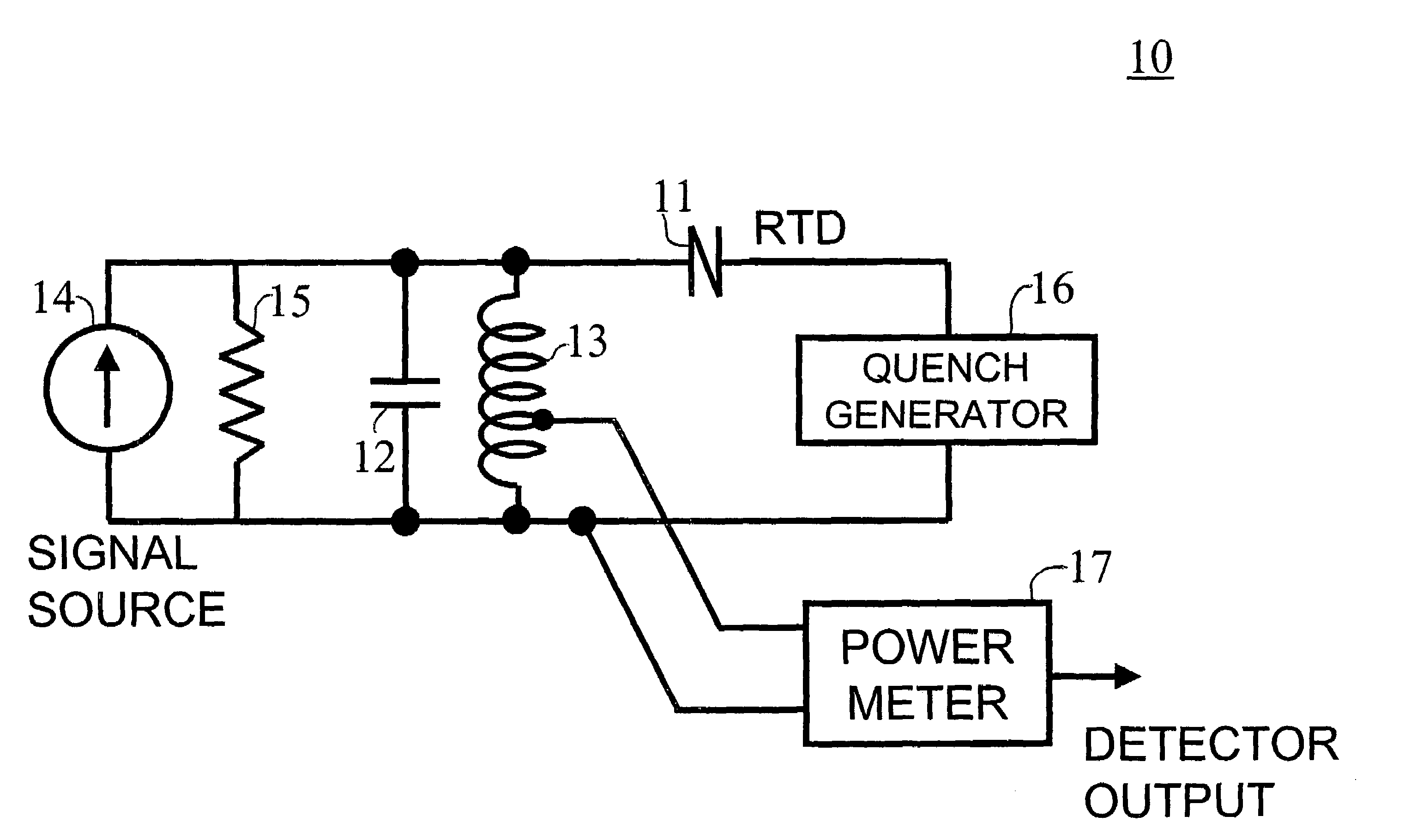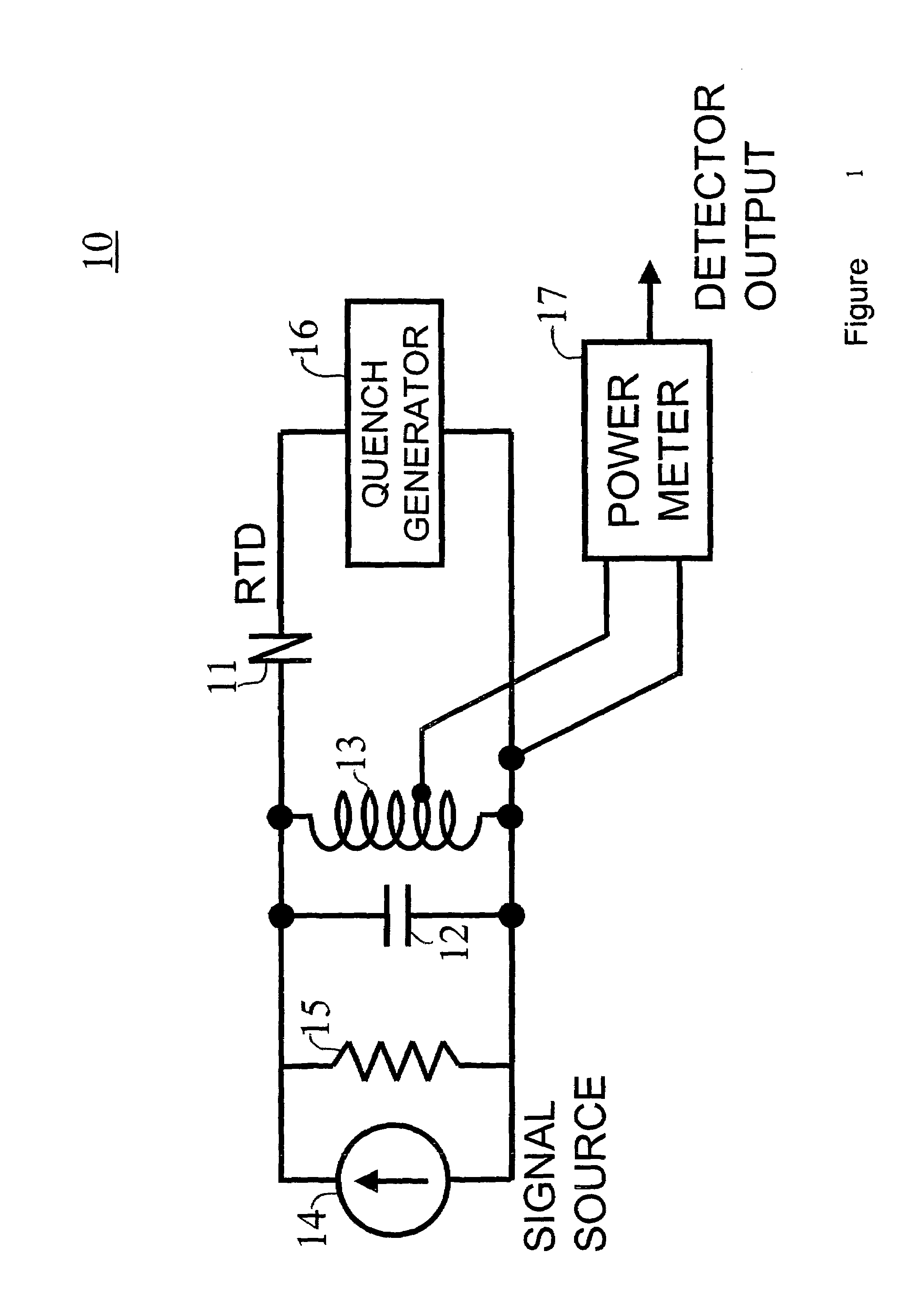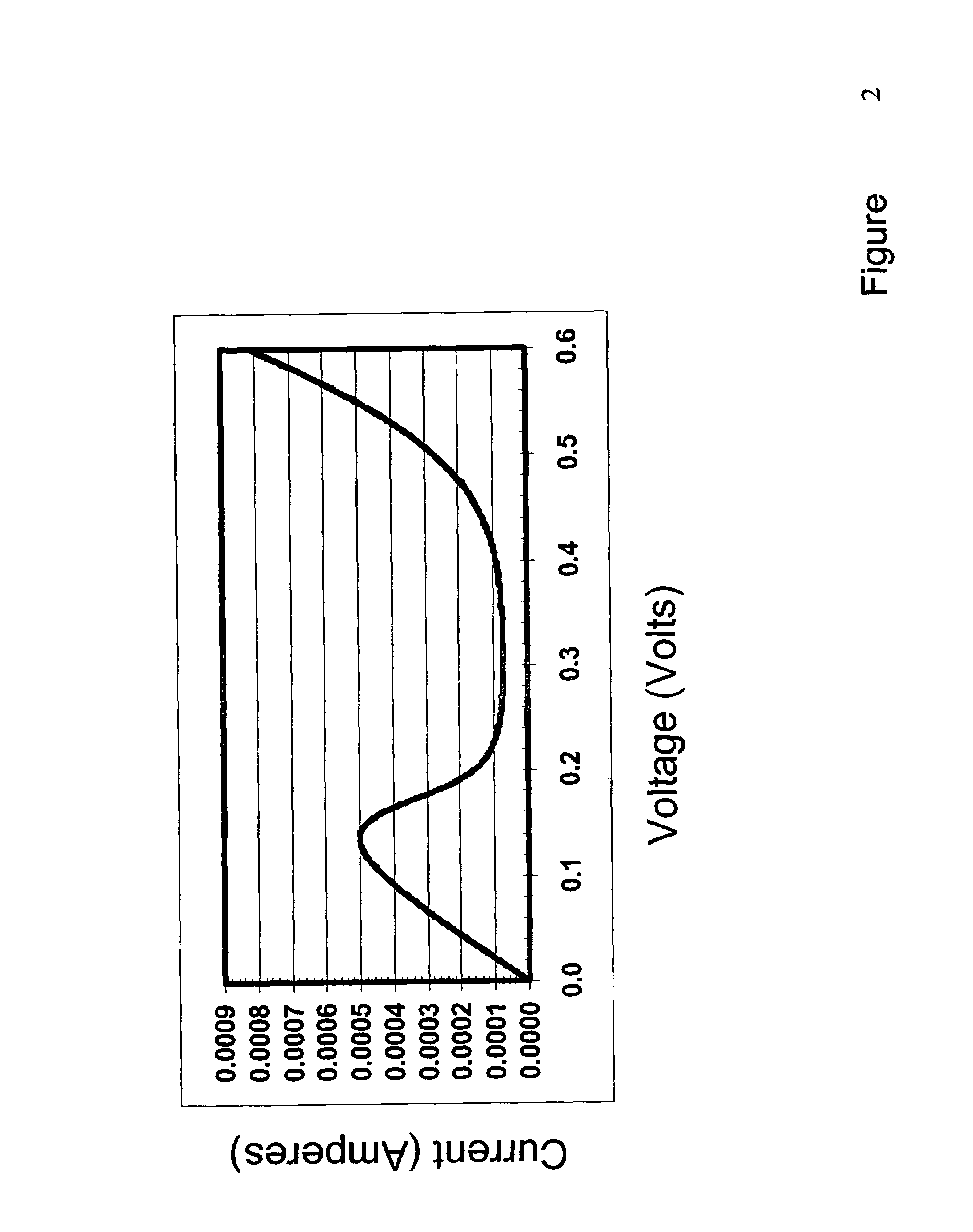Super-regenerative microwave detector
a detector and super-regenerative technology, applied in the field of microwave detectors, can solve the problems of low noise, low efficiency, and low loss of amplifier components at 500 ghz, and achieve the effect of reducing noise, reducing loss, and reducing nois
- Summary
- Abstract
- Description
- Claims
- Application Information
AI Technical Summary
Benefits of technology
Problems solved by technology
Method used
Image
Examples
Embodiment Construction
[0027]When power is applied to any electronic oscillator, steady state oscillations build up from random noise fluctuations within the circuit. The turn-on delay, the time between power-up and stable oscillation, is controlled by the overall gain, feedback, and noise level within the circuit. This characteristic turn-on time can be shortened by injecting a coherent, resonant signal into the oscillator. The circuit gain amplifies the injected signal, feeding back the amplified wave until stable oscillation is achieved. The final amplitude of the oscillations may be a million times greater than the strength of the injected input signal. This effect, called super-regeneration, can be used to build simple, highly sensitive radio frequency detectors using resonant tunneling devices. Due to their high intrinsic speed, super-regenerative detectors based on resonant tunneling devices can operate well above 1000 GHz. FIG. 1 shows a schematic of a conceptual super-regenerative millimeter-wave...
PUM
 Login to View More
Login to View More Abstract
Description
Claims
Application Information
 Login to View More
Login to View More - R&D
- Intellectual Property
- Life Sciences
- Materials
- Tech Scout
- Unparalleled Data Quality
- Higher Quality Content
- 60% Fewer Hallucinations
Browse by: Latest US Patents, China's latest patents, Technical Efficacy Thesaurus, Application Domain, Technology Topic, Popular Technical Reports.
© 2025 PatSnap. All rights reserved.Legal|Privacy policy|Modern Slavery Act Transparency Statement|Sitemap|About US| Contact US: help@patsnap.com



